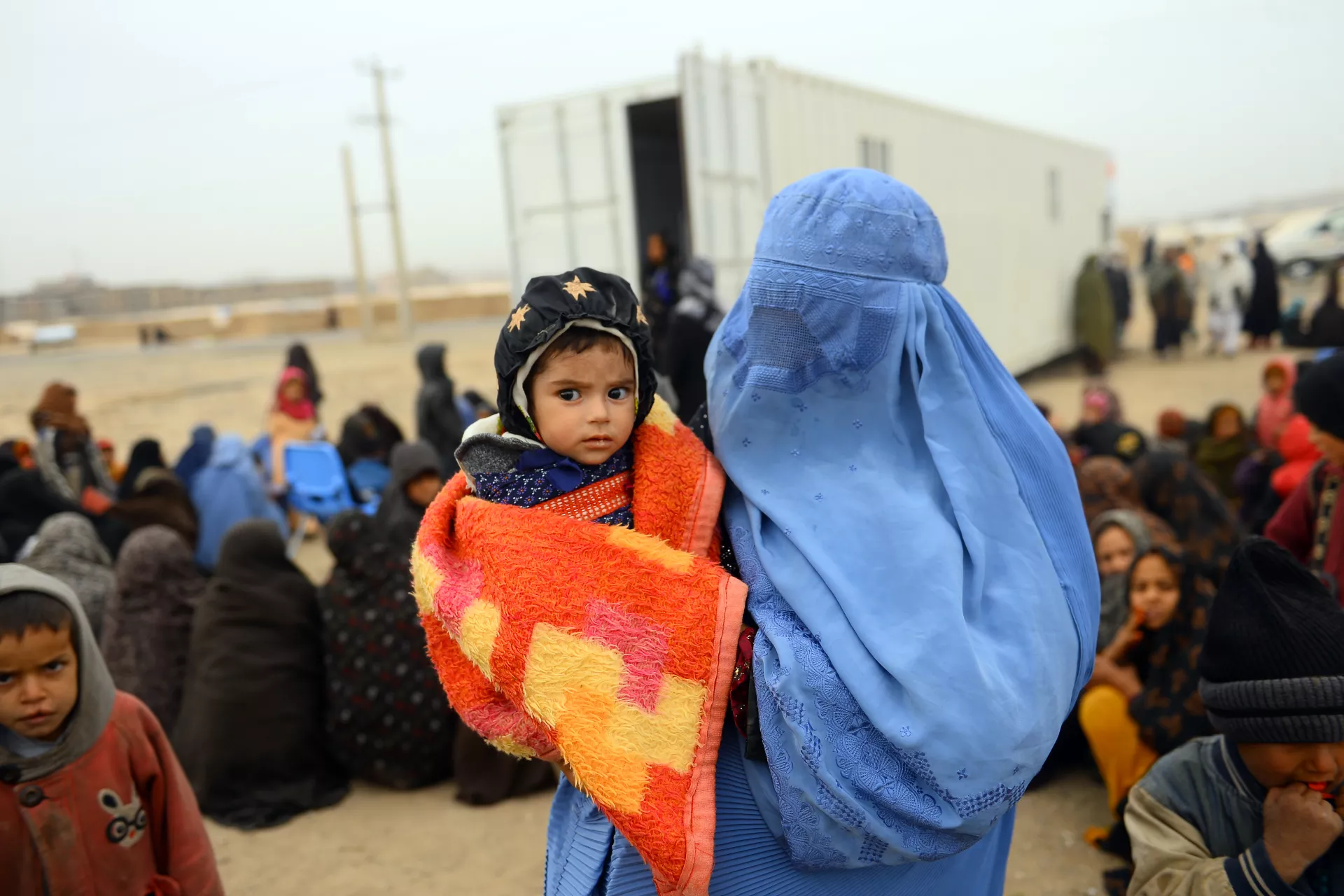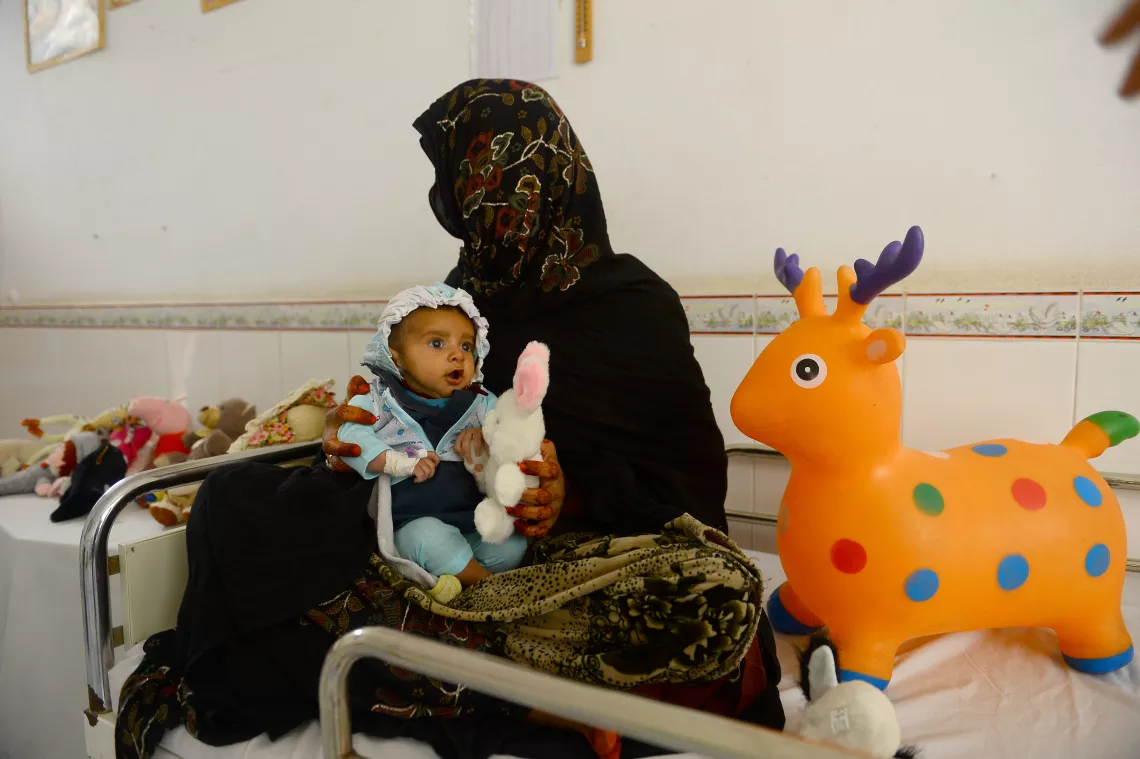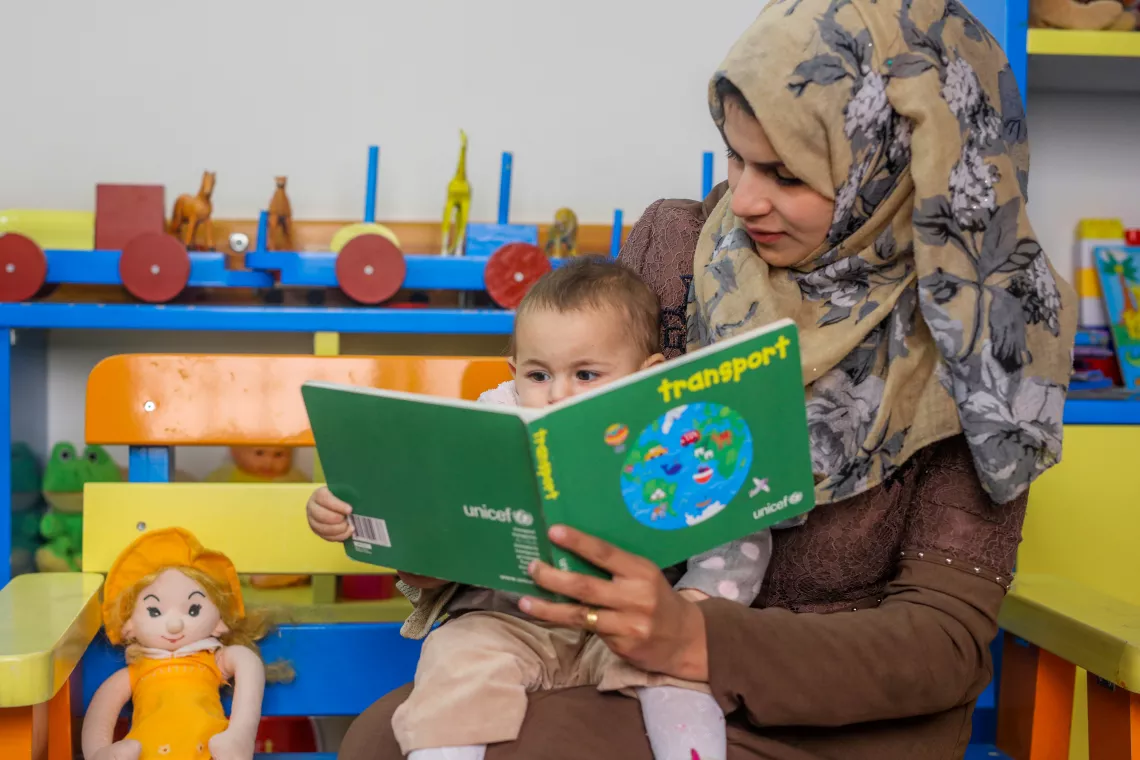Born into conflict: Threats beyond the front lines
More than 29 million babies were born into conflict-affected areas in 2018. UNICEF is working to protect them from trauma and toxic stress.

The impact of conflict extends far beyond the frontlines. More than 29 million babies were born into areas experiencing armed conflict in 2018, spending their earliest moments in chaos, often in deeply unsafe, and highly stressful environments.
“Some of the young children we see shake with fear, uncontrollably, for hours on end. They don’t sleep. You can hear them whimpering, it’s not a usual cry but a cold, weak whimper. Others are so malnourished and traumatized they detach emotionally from the world and people around them, causing them to become vacant and making it impossible for them to interact with their families.”
That’s how a UNICEF staff member described the situation for the children and babies in her care at an early childhood development centre in Yemen. It’s a reminder of how children born into conflict are so vulnerable, their childhoods stolen, their futures uncertain.
Preventing a lost generation means providing safe spaces and supporting caregivers to help create a buffer between these children and the chaos around them. These photos, taken across Afghanistan, the State of Palestine and Yemen, highlight UNICEF’s work improving children’s access to education, critical health services and safe spaces to play – the building blocks for a real childhood.
(Above): Malik was born in the middle of a drought, as intensified fighting forced his family to flee their home. He is one of around 600,000 severely malnourished children under the age of 5 in Afghanistan. Malik’s mother holds him as they wait to be seen by a UNICEF-supported mobile health team in the Shaidayee Camp for Internally Displaced Persons (IDPs) in the rural province of Herat, in northwestern Afghanistan. Mobile health teams provide health care in some of the world’s worst crises, reaching people who have been cut off from access to health services.
Afghanistan

Rasool, 2 months old, is also undernourished. She has been receiving treatment at the Mofleh Pediatric Hospital in Herat city, one of the places UNICEF and partners provide emergency assistance as they prioritize their work on the prevention of malnutrition in the country. The government, meanwhile, has been coordinating the response to the drought emergency and ensuing food insecurity.

Eight-month-old Aminullah undergoes treatment for malnutrition at a hospital in Herat province, where drought was followed by severe flooding. Children like Aminullah are at risk of stunting, a sign of chronic undernourishment during a child’s most critical periods of growth. The problem is particularly acute in Afghanistan, where 41 per cent of children under 5 are stunted.
State of Palestine

Regular outbreaks of violence and deteriorating living conditions have taken a heavy toll on children in Gaza, where ‘toxic stress’ is causing long-term psychological and physical harm. The situation in Gaza remains particularly dire for children, including Reeam Aloush, seen here at one of UNICEF’s early childhood development centres in the Sheikh Radwan district of Gaza City.

Providing safe spaces for families and young children living through conflict is a critical part of UNICEF’s work. Among those children is Ileen Awad. Born last year, she is a regular at one of the early childhood development centres in Gaza. Hospitals, health centres and child friendly spaces around the world – all of which provide critical services to parents and babies – have come under attack in conflicts in recent years.

Studies show that when caregivers are given the support they need to cope with trauma, they have the best possible chance of providing their young children with the nurturing care that is essential for healthy brain development – acting as a ‘buffer’ from the chaos around them. Here, a health worker plays with a 14-week-old baby at a centre in Gaza City.

Providing spaces where children can use play and early learning as outlets for the trauma they've experienced is vital. In 2018, UNICEF and partners ran 20 early childhood development centres and 12 child friendly spaces in the Gaza Strip.
Yemen

Omar Hanein Hamoud Rafik is one of those children born in Yemen since the escalation in violence in March 2015. More than four years of armed conflict have brought Yemen’s essential public services to the brink of collapse. The first to feel the effects are, invariably, the nation’s most vulnerable: including babies, who are growing up in an environment of toxic stress.

Providing safe spaces for families and their young children living through conflict – where children can use play and early learning as outlets for some of the trauma they have experienced – is a crucial part of UNICEF’s humanitarian response. UNICEF has introduced early childhood development kits at its centres: treasure boxes of activities that can include puzzles, building blocks, books and art supplies. Here, Yazan Mohammed Yahya al-Khalqi plays with a worker at one of the centres.

Maria Taha, 3 years old, flashes a welcome smile as she slides down a ladder at a child care centre on the outskirts of Sanaa. The centre offers a space for fun and normalcy amidst a conflict that is robbing children of their futures. More than 12 million children in the country are in need of humanitarian assistance.




